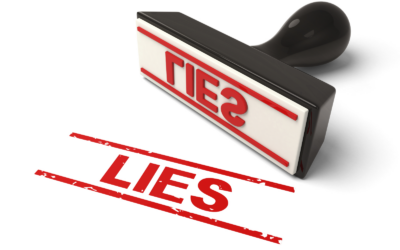By: Sara Kropf The government knows—and exploits the fact—that loss amount is the driver of white collar sentences. In criminal contracting fraud cases, the government has taken the position that the relevant loss is the entire amount of the contract that was...
Commercial Negotiation Tactics Are Not Fraud: Seventh Circuit Limits Scope of the Wire Fraud Statute
By: Sara Kropf The federal wire fraud statute is incredibly broad. In this era of non-stop email and texts, it’s hard to imagine a white collar case that doesn't implicate it. For the most part, courts have been reluctant to limit its reach. But a recent decision from...
A Groovy Decision by Fifth Circuit Gives Corporate Executives a Second Chance Based on Evidentiary Mistakes at Trial
The Fifth Circuit handed two corporate executives at a medical device company a big win recently. I’ve posted in the past about the indictments and trial of two former executives at ArthroCare, Michael Gluk and Michael Baker. They were found guilty in June 2014 of...
The SEC Finally Surrenders in Insider Trading Case
The SEC finally gave up the ship in its insider trading case against former hedge fund managers Anthony Chiasson and Todd Newman. After the Second Circuit reversed their convictions and the Supreme Court denied cert, the SEC decided not to pursue its civil suit...
This Shouldn’t Be News: Second Circuit Affirms that Government Needs Warrant to Seize Property
By: Sara Kropf The government's aggressive methods to seize a defendant’s assets before he is convicted of a crime hinders a defendant’s ability to choose—and pay for—his lawyer. A recent Second Circuit case limits the government’s ability to do so. It is based on the...
Great Decision on Loss Amount Calculation in Government Contracting Fraud Case
The calculation of loss amount drives sentencing decisions in many white collar cases. The higher the loss amount, the longer the sentence. Courts always seem to take an expansive view of what counts as a “loss” for sentencing. In a recent Third Circuit case, however,...
The Deleted Email Folder “Is Not Like a Trash Can”: Ninth Circuit Affirms Acquittal in Obstruction Case
By: Sara Kropf One of the first things I tell a potential client in a criminal case is not to delete anything from his computer. I explain that DOJ will turn deleting an email or two into an obstruction of justice charge. The client will nod and say he understands....
First, We’ll Blame the Lawyers: Second Circuit Grants New Trial in Remarkable Jury Taint Case
This is the kind of case that wakes up lawyers in a cold sweat at night. The Second Circuit recently granted a new trial to a defendant after the trial court found that he had waived his right to a new trial. The waiver came when his lawyers discovered the possibility...
Absurd Obstruction Charge Reversed–But the Government Won’t Give Up
Sometimes, the good guys win. The Deepwater Horizon oil spill was a tragedy. The explosion was deadly and the resulting environmental harm was devastating. The government’s response was typical: let’s find some people to prosecute. One of the unlucky targets of the...
Identity Theft Statute Narrowed — A Little Bit
By: Sara Kropf In recent years, the government has increasingly prosecuted individuals under the federal aggravated identity theft statute. This increase may be from the legitimate increase in identity theft but it may also result from the government’s realization...




